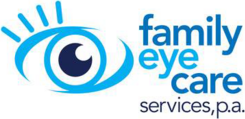Are You Worried About Vision Loss with Aging?
As we grow older, our eyesight may change, and we may face different eye problems. Some of the common eye-related conditions experienced by aging adults are glaucoma, dry eyes, age-related macular degeneration, and cataracts.
Our vision is essential for our daily activities and helps us maintain our independence. Therefore, we should take care of our eyes and prevent them from getting damaged. Although aging is a natural and inevitable process, we can still lower the risk of losing our vision. In this article, we will explore some effective ways to preserve our eyesight and avoid vision loss as we age.
Although there are hereditary conditions you can’t control (such as glaucoma or macular degeneration), you can lower the chance of losing your vision by making healthy lifestyle choices. Also, a regular eye check up is ideal for ageing adults to ensure their eyes’ wellness.
7 Easy Tips to Keep Your Vision Sharp
Eat Nutritious and Healthy Food
Your diet plays a vital role in maintaining your eye health.
A well-balanced diet is essential to keeping your eyes healthy. Adding a wide range of oils, vitamins, and minerals is essential to helping prevent many eye-related issues.
You can get vitamin C from fruits like oranges and grapefruits, which can boost your immunity and protect you from eye infections and diseases. You can also eat foods rich in vitamin E, such as nuts and seeds, to prevent macular degeneration. Omega-3 fatty acids are also essential for your eye health, as they can reduce dry eyes and other eye problems. You can find them in fish, leafy greens, chia seeds, and more.
Don't underestimate the power of food for your vision. Choose healthy foods that can make your eyes happy.
Stay Active and Control Your Weight
To keep your eyes healthy, you need to take care of your body too. Being overweight can affect your heart and increase your sugar levels, which can affect your vision. Type-II diabetes, which is common among people who are overweight, can lead to diabetic retinopathy, a condition that can damage the blood vessels, which can cause serious damage to the eyes.
Quit Smoking
Did you know that smoking can damage your eyesight as well as your heart and lungs? Smoking is a major risk factor for cataracts and age-related macular degeneration (AMD), two leading causes of vision loss.
AMD affects the part of your eye that allows you to see fine details. It can make everyday activities like reading or driving very difficult. Smokers have twice the chance of getting AMD as non-smokers. The best thing you can do for your eyes and your health is to quit smoking today.
Wear Sunglasses
UV radiation can damage your eyes. It can cause cataracts, which affect your vision and make it hard to see clearly. That's why you should always wear sunglasses that protect you from both UV-A and UV-B rays. And don't forget to choose sunglasses that fit well and fully cover your eyes. You'll look cool and keep your eyes healthy!
Manage Chronic Conditions
Besides diabetes, other conditions can affect your vision. A condition like high blood pressure can cause inflammation of the optic nerve, which can cause severe pain and blindness.
20-20-20
The use of electronic devices has become a constant in our everyday lives. We all love to binge-watch our favourite shows, play games, and work on our laptops. But did you know that staring at the screen for too long can make your eyes go wonky?
Don't worry; there's a simple way to prevent this. It's called the 20-20-20 rule—a technique to relax your eyes.
Here's how it works: every 20 minutes, look away from the screen and focus on something that's 20 feet away for 20 seconds. That's it! You'll be amazed at how much better your eyes feel.
Schedule an Annual Comprehensive Eye Exam
As you get older, your vision and eye condition may change, so having a yearly eye exam is a good way to keep your eyes healthy and clear. Some eye diseases may not have any noticeable signs, but an eye expert can detect them early and prevent them from getting worse.
